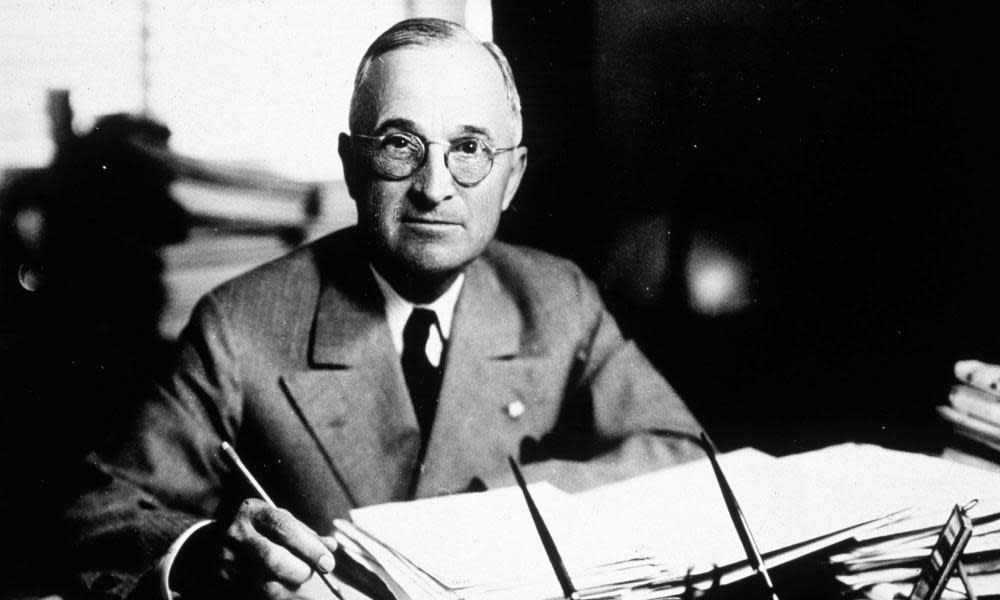Harry Truman and the nuclear bombs dropped on Hiroshima and Nagasaki

Clifton Daniel is right about his grandfather’s bombing of Hiroshima (‘He felt he had to do it’, 4 August). “That was no decision!” Harry S Truman told me when I interviewed him in July 1963 in the presidential library in Independence, Missouri. I was a postgraduate student and had come to ask him about Hiroshima, the case study at the centre of my recently completed thesis on presidential decision-making. At a stroke, the very core of my research was undercut by the amiable old man.
Truman, who had only become president a few weeks before Hiroshima upon the sudden death of Franklin D Roosevelt, told me how FDR’s advisers, notably the venerable secretary of war, Henry L Stimson, persuaded him that dropping the atomic bomb on people was the one initiative that might bring the war in the Pacific to a rapid end, without the need for a protracted invasion of the Japanese islands at the cost of a million more lives. When I asked Truman about the dangers of nuclear radiation, or whether the bomb was really used to impress or scare the Soviets, all this was dismissed as the dreamings of people who weren’t present at the time and were speculating about matters they weren’t competent to judge. “All the atomic bomb was,” said Truman, “was a big bomb to end the war. And it did end it too!”
I told him I had always had visions of the US president pacing the corridors of the White House, like Lincoln during the civil war, weighed down by the pressure of the job. Truman laughed. “I never lost sleep over any decision I had to make,” he said, adding confidentially: “Your Winston was the same, you know!”
As I left, Truman told me that, if I’d wanted to focus on a real decision – the biggest, most important he had had to make as president – I should have turned my attention to the US entry into Korea a few years later.
Daniel Snowman
Senior research fellow, Institute of Historical Research, University of London
• Whether the bombing of Hiroshima or the entry of the Soviet Union into the war was the crucial event in causing the Japanese surrender can never be conclusively settled (Hiroshima at 75: bitter row persists over US decision to drop the bomb, 5 August). However, very little is said about the motives for the second bomb, on Nagasaki three days later. Few argued that it was necessary to reinforce the message of Hiroshima. Rather, the military and scientific imperative was to test a different bomb design – “Fat Man”, an implosion type using plutonium, as opposed to the uranium of Hiroshima’s “Little Boy”. To my mind that, destroying a mainly civilian city for such reasons, makes it even more of a war crime, if that is possible, than the bombing of Hiroshima.
Frank Jackson
Former co-chair, World Disarmament Campaign

 Yahoo News
Yahoo News 
